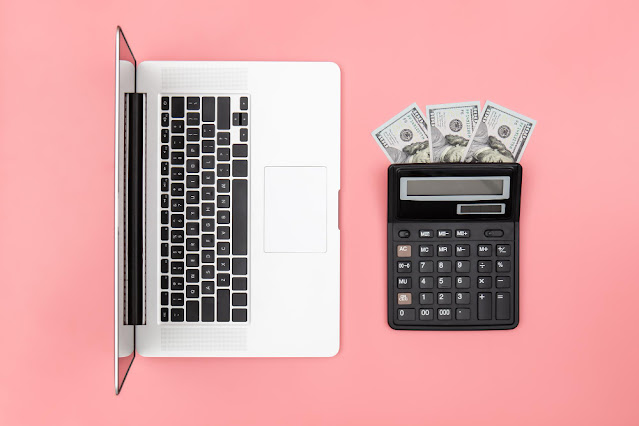5 Money Management Tips to Improve Your Finance
Spending, saving, investing, and even budgeting are all part of good money management. So how do you boost your financial self-assurance and lower your anxiety about reaching your financial objectives? Finding ways to better manage your finances and your mindset could be beneficial.
Track your spending
In general, it's beneficial to set aside some of your
monthly income before using it for expenses like food, rent, energy, loan
payments, insurance premiums, and other needs. By doing this, you can be sure
that you are prepared for everything that might happen and lower the likelihood
that you will spend more than you intended.
Utilize the free online resources available to you for
managing your finances. If you prefer a paper-based option, you could also just
collect your receipts and record everything in a planner or notepad.
Don’t commit to any new recurring monthly bills
Your monthly earnings are totaled. This includes any extra
money you may receive in addition to your salary from a job, such as bonuses,
tax refunds, or earnings from side jobs.
Add up every penny you spend each month. These expenses may
cover expenses for the main "buckets," such as paying the rent or
mortgage, purchasing food, paying off student loans, and vacationing. For
monthly payments like food and utility bills that aren't often the same, you
can take an average from previous months.
Save up for big purchases
Certain kinds of loans and debt might be advantageous when
making large purchases, such as a house or even a car that you urgently need.
Cash remains the safest and most cost-effective payment option for other big
transactions, nevertheless.
When you pay in cash, you prevent interest from accumulating
and creating a debt that would take weeks, months, or even years to pay off.
The money you saved might be kept in a bank account to collect interest while
you wait to make your purchase. Just because your credit and income qualify you
for a loan doesn't mean you should take it.
Limit your credit card purchases
A credit card is a profligate spender's worst enemy. When
you run out of cash, you simply reach for your credit cards rather than
considering if you will be able to afford to pay the amount. Refrain from using
credit cards to make costly expenditures, especially for unnecessary items.
Small purchases bought here and there add up quickly, and before you realise it, you've spent more than you had planned. Start tracking your spending to identify areas where you might be spending unknowingly. Save your receipts and organise your purchases in a spending diary to find areas where you struggle to restrict your spending.
Set financial goal
Having a financial goal might help you stay focused and
limit your spending. Think out what you want to achieve with your money now and
in the future, and plan accordingly. If you want to achieve your long-term
financial goals, such as your dream home, your child's education, retirement,
and a variety of other things, you must start investing in financial products.
Always set realistic goals with precise due dates. This will
help you stay motivated and ensure that your money is being spent sensibly,
allowing you to employ your money management skills with ease. Consider both
your monthly spending patterns and your take-home pay when making a budget that
you can stick to.
Making a budget is an excellent way to encourage better
lifestyle choices, such as cooking more frequently at home, but you should also
give yourself a chance to stick to it. This method of teaching financial literacy can only be successful in that way.
Blog Home | Visit Our Website | Mutual Funds




Comments
Post a Comment